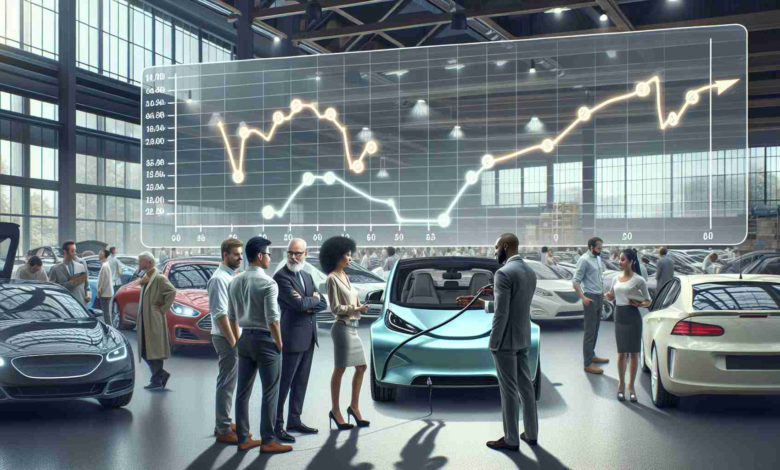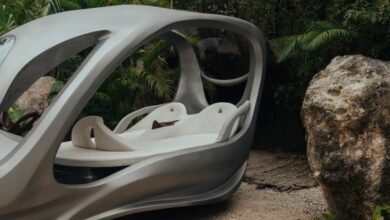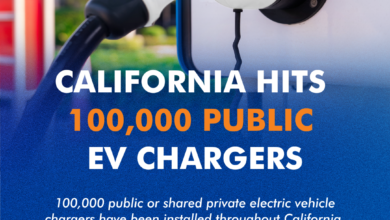The Shifting Value of Electric Vehicles in the Pre-Owned Market

A recent shift in the automotive industry shows electric vehicles losing their novelty status on the used car market. These once sought-after cars, selling second-hand at prices higher than their brand-new counterparts during the semiconductor shortage, are now depreciating like traditional gasoline-powered vehicles. While they still maintain better value retention than their gasoline counterparts, hybrids are surpassing them as the preferred option among cost-conscious buyers.
Summary: Electric cars experience normal depreciation while used, with hybrids seen as a more dependable choice by consumers. Despite declining novelty, electric vehicles still offer cost savings on fuel and maintenance, with government tax plans unlikely to cancel these benefits. Quality pre-owned electric models, such as the Gili Geometry C and Hyundai Kona EV, can be found for competitive prices offering good performance and reliability.
Although electric cars are starting to lose value more akin to standard combustion engine vehicles, they still offer several advantages: lower charging costs compared to fuel, especially for those charging at home or using slower methods; cheaper maintenance fees; and reduced overall pollution levels. Battery lifetime concerns are partially mitigated by manufacturers offering extended warranties for a fee, echoing the practice for hybrid vehicles. Batteries often do not fail entirely but may need partial replacements, which are considerably less expensive than full battery replacements.
Electric vehicles are approaching a point where they are no longer a speculative investment but rather a practical, economical choice for consumers. High-quality, affordable, pre-owned electric vehicles are available on the market, offering substantial savings on running costs and an environmentally friendly alternative to traditional cars. However, buyer’s expectations are evolving, seeking further price reductions for used electric cars that approach significant warranty thresholds, such as an eight-year or 100,000-kilometer battery lifespan.
As the electric vehicle market matures, the government is considering implementing travel taxes on these vehicles starting in 2026. Nonetheless, this is expected only to diminish, not negate, the cost savings associated with electric vehicle ownership. Despite these impending changes, the current used car market exhibits a healthy selection of modern electric vehicles available. The article emphasizes that while electric cars might be losing the extraordinary status they enjoyed during the chip crisis, they remain economically advantageous and a wise choice for the environment.
The Shift in EV Perceptions in the Used Car Market
The automotive industry has been undergoing a significant transformation with the rise of electric vehicles (EVs). Once a market novelty, EVs are now becoming a mainstay in the used car market. The unique dynamics that led to used EVs selling for more than new ones, predominantly during the semiconductor shortage, are stabilizing. As a result, depreciation rates for used electric vehicles are beginning to align more closely with traditional internal combustion engine vehicles.
Market Forecasts for Electric Vehicles
Industry analysts predict a robust growth trajectory for the electric vehicle sector. Market forecasts estimate that by 2030, EVs could represent a sizable share of the global automotive market. This growth is driven by advancements in battery technology, increasing range capabilities, and a broader acceptance among consumers. Governments around the world are supporting this transition with initiatives aimed at reducing greenhouse gas emissions through subsidies and tax incentives for EV buyers.
Issues and Developments in the EV Industry
There are several challenges the EV industry faces as it integrates more fully into the traditional automotive landscape. Among these are battery technology and longevity concerns, which directly impact the resale value and perception of reliability among used vehicle buyers. To address this, manufacturers are offering extended warranties and battery replacement programs, aimed at reassuring consumers and preserving vehicle value over time. Additionally, there is an ongoing debate about the introduction of mileage-based taxes on electric vehicles. While such taxes are seen as a way to balance the revenue loss from fuel taxes, they also have the potential to dampen EV adoption rates.
Despite these issues, the industry continues to advance, with companies focusing on improving the infrastructure for EVs, such as expanding the network of charging stations, which will continue to enhance the practicality of electric vehicle ownership.
EV Industry Links
You can explore more about electric vehicles and advancements in the EV industry by visiting leading automotive or electric vehicle industry websites. For the latest market trends and analysis, Bloomberg is a central resource, while for information on electric vehicles and government policies, websites such as the International Energy Agency can be highly informative.
Conclusion
In summary, while the trend of high resale value for used electric vehicles may be normalizing, the industry continues to grow and evolve. EVs maintain numerous benefits, such as lower fuel and maintenance costs, which continue to make them attractive to consumers. With the market adapting and offering more affordable options for quality pre-owned electric vehicles, such as the Gili Geometry C and Hyundai Kona EV, consumers can benefit from a greener mode of transportation without sacrificing performance or reliability. As the industry and market forecasts point towards further growth and technological advancement, electric vehicles remain a promising aspect of the future automotive landscape.

Iwona Majkowska is a prominent figure in the tech industry, renowned for her expertise in new technologies, artificial intelligence, and solid-state batteries. Her work, often at the forefront of innovation, provides critical insights into the development and application of cutting-edge AI solutions and the evolution of energy storage technologies. Majkowska’s contributions are pivotal in shaping the future of sustainable energy and intelligent systems, making her a respected voice in both academic and industrial circles. Her articles and research papers are a valuable resource for professionals and enthusiasts alike, seeking to understand the impact and potential of these transformative technologies.



